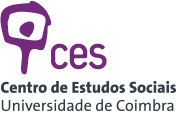
URBiNAT
Healthy corridors as drivers of social housing neighbourhoods for the cocreation of social,environmental and marketable NBS
URBiNAT focuses on the regeneration and integration of deprived social housing urban developments through an innovative and inclusive catalogue of Nature-Based Solutions (NBS), ensuring sustainability and mobilising driving forces for social cohesion. Interventions focus on the public space to co-create with citizens new urban, social and nature-based relations within and between different neighbourhoods. Taking the full physical, mental and social wellbeing of citizens as its main goal, URBiNAT aims to co-plan a healthy corridor as an innovative and flexible NBS, which itself integrates a large number of micro NBS emerging from community-driven design processes.
URBiNAT consists of a worldwide consortium of academic and business partners around 7 European cities (Porto, Nantes and Sofia as ‘frontrunners’; Siena, Nova Gorica, Brussels and Høje-Taastrup as followers), that will act as living laboratories to implement healthy corridor solutions. The cities will be supported by local partners, associations and research centres, and by Europe-wide centres, universities and companies. These will develop a participatory process, an NBS catalogue and a healthy corridor, while monitoring impacts, disseminating and marketing results.
Together, they form an inclusive community of practice (CoP), collaborating with partners from Iran and China,
and NBS observers located in Brazil, Oman, Japan and a Chinese city, bringing experiences and an international dimension to the project.
Partners will contribute their innovative NBS experience deployed through an array of transdisciplinary knowledge, methodologies and tools, as nature-based solutions. This will be supplmented by ‘smart’ digital tools, citizen engagement, solidarity and social economy initiatives, social innovation for value-generation, incubation for business development and capacity building, and ICT governance platforms. The social, economic and urban impacts will be measured and replicated by URBiNAT Observatory.
The project proposes new models of urban development through innovations in the public space, promotes social cohesion through living labs, constituted in the cities, and outspreads within a community of practices and transversal sharing of knowledge. It takes as model processes of experimentation and innovation of methodologies, of co-design and co-implementation, and of interaction between scientific knowledges and wisdoms from local communities.
Portugal
- Centro de Estudos Sociais da Universidade de Coimbra
- Câmara Municipal Do Porto
- Centro de Investigação em Biodiversidade e Recursos Genéticos (CIBIO-InBIO)
- Domussocial - Empresa de Habitação e Manutenção do Município do Porto
- GUDA - Give U Design Art
- Universidade de Coimbra (CEIS20; Departamento de Arquitectura da FCTUC)
França - France
- Nantes Métropole
- Items International SARL
- Centre National De La Recherche Scientifique CNRS
Bulgária - Bulgaria
- Municipality of Sofia
- Universitet Po Architektura Stroitelstvo I Geodezija
Itália - Italy
- Comune Di Siena
- Libera Universita Di Lingue e Comunicazione IULM
- Fondazione Giangiacomo Feltrinelli
Bélgica - Belgium
- Ville de Bruxelles
- Universiteit Antwerpen
Eslovénia - Slovenia
- Municipality Of Nova Gorica
- Univerza V Novi Gorici
Dinamarca - Denmark
- Høje - Taastrup Kommune
- Teknologisk Institut
- SLA A/S
- City Facilitators
Suécia - Sweden
- Foreningen Iked
Espanha - Spain
- Institut D'arquitectura Avancada de Catalunya
- New Growing Systems, S.L.
Alemanha - Germany
- Hochschule Ostwestfalen-Lippe
Irão - Iran
- Iran Chamber Of Commerce, Industries, Mines And Agriculture (ICCIMA)
China
- National Smart City Joint, LA
Beatriz Caitana (coord)
Fábio Sampaio
Giovanni Allegretti
Gonçalo Canto Moniz (coord)
Isabel Ferreira (coord)
Joana Raquel Alves dos Santos
João Pereira
Lúcia Fernandes
Nancy Duxbury
Nathalie Nunes (coord)
Rita Campos
Sílvia Ferreira

